| August 06, 2007 |  |
our time will build eternity |
| Previous Issues | Aug 03 | Aug 02 | Aug 01 | Jul 31 | Jul 30 |
A Dreamy Lunar Eclipse For August Skies Huntsville AL (MSFC) Aug 05, 2007
Huntsville AL (MSFC) Aug 05, 2007Close your eyes, breathe deeply, let your mind wander to a distant seashore: It's late in the day, and the western sun is sinking into the glittering waves. At your feet, damp sand reflects the twilight, while overhead, the deep blue sky fades into a cloudy melange of sunset copper and gold, so vivid it almost takes your breath away. A breeze touches the back of your neck, and you turn to see a ... more NASA Spacecraft Heads For Polar Region Of Mars  Cape Canaveral FL (SPX) Aug 04, 2007
Cape Canaveral FL (SPX) Aug 04, 2007NASA's Phoenix Mars Mission blasted off Saturday, aiming for a May 25, 2008, arrival at the Red Planet and a close-up examination of the surface of the northern polar region. Perched atop a Delta II rocket, the spacecraft left Cape Canaveral Air Force Base at 5:26 a.m. Eastern Time into the predawn sky above Florida's Atlantic coast. "Today's launch is the first step in the long journey to ... more Seeing The Moon Anew  Houston TX (SPX) Aug 05, 2007
Houston TX (SPX) Aug 05, 2007Nearly 40 years after man first walked on the Moon, the complete lunar photographic record from the Apollo project will be accessible to both researchers and the general public on the Internet. A new digital archive - created through a collaboration between Arizona State University and NASA's Johnson Space Center in Houston - is making available high-resolution scans of original Apollo flight fi ... more Cassini Finds Possible Origin Of One Of Saturn's Rings  Pasadena CA (SPX) Aug 03, 2007
Pasadena CA (SPX) Aug 03, 2007Cassini scientists may have identified the source of one of Saturn's more mysterious rings. Saturn's G ring likely is produced by relatively large, icy particles that reside within a bright arc on the ring's inner edge. The particles are confined within the arc by gravitational effects from Saturn's moon Mimas. Micrometeoroids collide with the particles, releasing smaller, dust-sized particles t ... more Researchers Produce Images Of Gases Escaping From Io  Boston MA (SPX) Jul 29, 2007
Boston MA (SPX) Jul 29, 2007Boston University (BU) researchers published today the first clear evidence of how gases from Jupiter's tiny moon's volcanoes can lead to the largest visible gas cloud in the solar system. Jupiter, the largest planet in the solar system, has a moon named Io that is just 100 km larger in radius than Earth's Moon. According to lead researcher Michael Mendillo, professor of electrical and computer ... more |
spacetravel
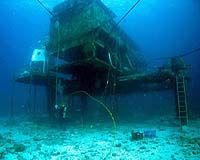 mars-exomars 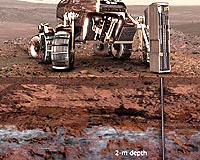 lunar 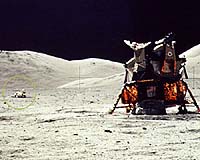 |
 Boston MA (SPX) Jul 21, 2007
Boston MA (SPX) Jul 21, 2007Boston University researchers have published the first clear evidence of how gases from Jupiter's tiny moon's volcanoes can lead to the largest visible gas cloud in the solar system. Jupiter, the largest planet in the solar system, has a moon named Io that is just 100 km larger in radius than Earth's Moon. According to lead researcher Michael Mendillo, professor of electrical and computer engine ... more From Dark Obscurity A Tiny New Saturnian Moon Comes To Light  Boulder C0 (SPX) Jul 21, 2007
Boulder C0 (SPX) Jul 21, 2007Like a hawk's eyes, the high resolution cameras on NASA's Cassini spacecraft have spotted yet another small, previously unknown moon circling giant Saturn and one which may indicate the existence of other small bodies in the same region. The tiny world--presently thought to be only about 2 kilometers (1 mile) wide--orbits at 197,700 kilometers (122,800 miles) from Saturn. Until a name for the mo ... more Where To Next For The NASA Discovery Program  Cameron Park CA (SPX) Jul 21, 2007
Cameron Park CA (SPX) Jul 21, 2007The next full-scale mission to be selected for the Discovery Program will be selected in early October, from a set of three finalists including a near-Earth asteroid sample-return mission (which would be very rewarding scientifically, but is already perilously close to the program's official mission cost limit), or a Venus orbiter or lunar orbiter (which would be cheaper, but also somewhat less ... more NASA Robots Practice Moon Survey In The Arctic Circle  Moffett Field CA (SPX) Jul 21, 2007
Moffett Field CA (SPX) Jul 21, 2007Two NASA robots are surveying a rocky, isolated polar desert within a crater in the Arctic Circle. The study will help scientists learn how robots could evaluate potential outposts on the moon or Mars. The robots, K10 Black and K10 Red, carry 3-D laser scanners and ground-penetrating radar. The team arrived at Haughton Crater at Devon Island, Canada, on July 12 and will operate the machines un ... more |
rocketscience
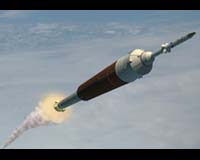 cassini 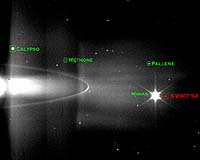 water-earth 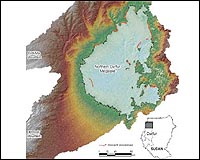 |
 Pasadena CA (SPX) Jul 18, 2007
Pasadena CA (SPX) Jul 18, 2007Saturn's distinctive moon Iapetus is cryogenically frozen in the equivalent of its teenage years. The moon has retained the youthful figure and bulging waistline it sported more than three billion years ago, scientists report. "Iapetus spun fast, froze young, and left behind a body with lasting curves," said Julie Castillo, Cassini scientist at NASA's Jet Propulsion Laboratory, Pasadena, Calif. ... more Moonshine Can Reflect Lunar Composition  Phoenix (UPI) Jul 18, 2007
Phoenix (UPI) Jul 18, 2007U.S. scientists determined that they can predict concentrations of certain minerals on the moon by comparing variations in reflected light. Samples of lunar rocks returned by U.S. astronauts show large variations in titanium oxide concentrations, suggesting complex compositional zonation within the lunar mantle. M.S. Robinson of Arizona State University and colleagues, noting ilminite has ... more NASA Awards Upper Stage Engine Contract For Ares Rockets  Washington DC (SPX) Jul 17, 2007
Washington DC (SPX) Jul 17, 2007NASA has signed a $1.2 billion contract with Pratt and Whitney Rocketdyne Inc., of Canoga Park, Calif., for design, development, testing and evaluation of the J-2X engine that will power the upper stages of the Ares I and Ares V launch vehicles. The contract includes ground and test flight engines. It continues work that began on June 2, 2006, under a preliminary letter contract with Pratt and W ... more Rocket Tests Move NASA Closer To The Lunar Vision  Cleveland OH (SPX) Jul 11, 2007
Cleveland OH (SPX) Jul 11, 2007A liquid oxygen-hydrogen pump fed engine developed to demonstrate advanced rocket technologies for future space vehicles achieved a major technical milestone in throttling capability. The engine was designed to demonstrate successful throttling from full power down to 10 percent of its thrust. This flexibility to control the flow of fuel through an engine is necessary for a lunar lander, allowin ... more
|
telescopes
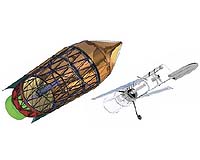 lunar  cassini 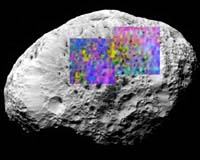 |
| Previous Issues | Aug 03 | Aug 02 | Aug 01 | Jul 31 | Jul 30 |
| The contents herein, unless otherwise known to be public domain, are Copyright 1995-2007 - SpaceDaily. AFP and UPI Wire Stories are copyright Agence France-Presse and United Press International. ESA Portal Reports are copyright European Space Agency. All NASA sourced material is public domain. Additional copyrights may apply in whole or part to other bona fide parties. Advertising does not imply endorsement, agreement or approval of any opinions, statements or information provided by SpaceDaily on any web page published or hosted by SpaceDaily. Privacy statement |